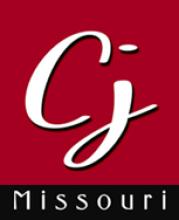Decorah, Iowa, Considers the Future of MetroNet
Decorah, named an "All-Star Community" in part due to benefits from their internal fiber network, is now exploring new ways to utilize MetroNet. According to a recent Decorah Newspapers article, the six community anchor institutions (CAIs) that collaborated to deploy the network recently met with the city council to discuss the future.
The 11-mile network began serving CAIs and an additional 18 facilities in 2013. After a 2008 flood that knocked out communications, the city, county, and school district began planning for the network. Eventually, the project grew to include Luther College, the Upper Explorerland Regional Planning Commission, and the Winneshiek Medical Center. BTOP funds paid for much of the approximate $1 million deployment but contributions from participants supplied an additional $450,000.
According to the article, MetroNet supplies each institution with its own fiber, leaving plenty to spare. Decorah City Manager and Chair of the MetroNet Board Craig Bird says that the network has a "vast amount" of dark fiber available that is not being used. Members of the community have approached the Board about using the fiber for better connectivity beyond current uses:
Bird said the MetroNet Board has to decide how to respond to a grassroots petition committee of citizens “demanding access to the MetroNet and faster broadband speeds and fiber capacities” for Internet access to private homes and businesses.
“The MetroNet Board is now starting to look at the future and what the MetroNet holds for the six anchor members, but also for the community,” he told the Councils.
At the city council meeting, Bird discussed the possibility of creating a municipal Internet utility, creating a cooperative, forming a nonprofit, or leaving MetroNet as a service for the existing members and facilities. They also considered the option of leasing dark fiber to private providers.
Bird also told the council that the MetroNet Board has agreed to participate in a regional feasibility study to include northeast Iowa. The Iowa Association of Municipal Utilities has commission the study that will include a number of towns:



